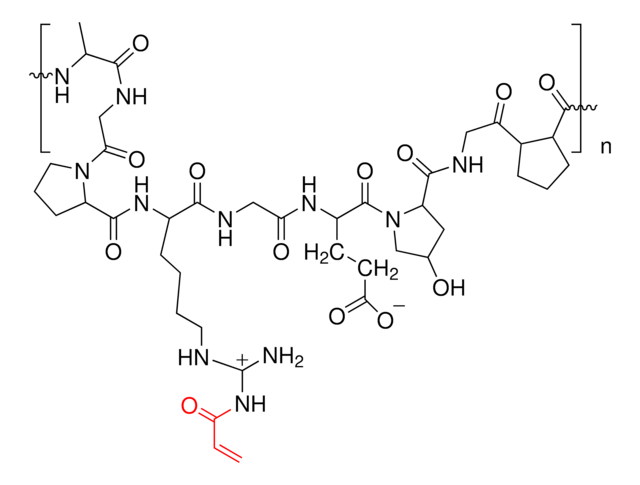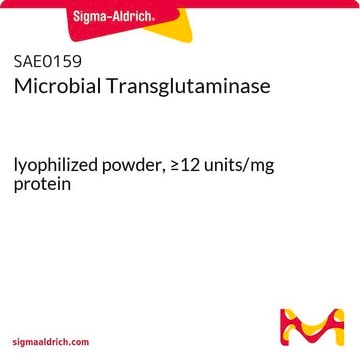Wichtige Dokumente
907723
Azide functionalized gelatin
degree of substitution >80%
Synonym(e):
Azide functionlized gelatin, Azide-modified gelatin, Clickable gelatin
About This Item
Empfohlene Produkte
Beschreibung
Degree of substitution: greater than 80% by TNBS method
NMR: Conforms to structure
Form
powder
Farbe
white to pale yellow
Lagertemp.
−20°C
Allgemeine Beschreibung
Lagerklassenschlüssel
11 - Combustible Solids
WGK
WGK 3
Flammpunkt (°F)
Not applicable
Flammpunkt (°C)
Not applicable
Hier finden Sie alle aktuellen Versionen:
Analysenzertifikate (COA)
Die passende Version wird nicht angezeigt?
Wenn Sie eine bestimmte Version benötigen, können Sie anhand der Lot- oder Chargennummer nach einem spezifischen Zertifikat suchen.
Besitzen Sie dieses Produkt bereits?
In der Dokumentenbibliothek finden Sie die Dokumentation zu den Produkten, die Sie kürzlich erworben haben.
Unser Team von Wissenschaftlern verfügt über Erfahrung in allen Forschungsbereichen einschließlich Life Science, Materialwissenschaften, chemischer Synthese, Chromatographie, Analytik und vielen mehr..
Setzen Sie sich mit dem technischen Dienst in Verbindung.







